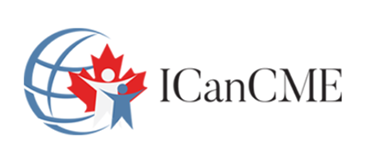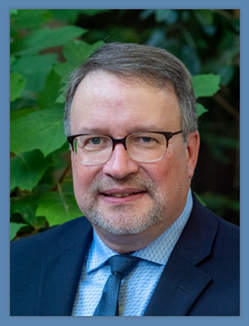ICanCME: Interdisciplinary Canadian Collaborative ME Research Network
Jan 23, 2022
In August 2019, the Canadian Institutes of Health Research (CIHR) funded the first team grant ever for Myalgic Encephalomyelitis.
The press release states “Government of Canada invests $1.4M in biomedical research to improve the quality of life of people living with myalgic encephalomyelitis”.
The past few years have brought a lot of good news for ME/CFS research in Canada and elsewhere. Research funding both public and private is increasing. Top researchers from other fields are attracted by the challenge of finding the cause, diagnostic tests and effective treatment for ME/CFS. ME isn’t a career destroyer anymore. The evidence that ME/CFS is a serious, disabling biomedical disease grows.
* A note on terminology. The ICanCME grant refers to the disease in question as “ME”. Most organizations worldwide use the terminology “ME/CFS”. The name continues to be a hotly contested issue. In this blog I use the terms ME and ME/CFS interchangeably. Hopefully when we have clarity about the pathophysiology of ME/CFS, a suitable name will be agreed upon.
What are the goals of the ICanCME?
The vision of the patients, clinicians and researchers of the ICanCME is ambitious.
● Identify biomarkers for ME/CFS.
● Bring diagnostic tests to widespread clinical practice.
● Develop made in Canada clinical practice guidelines.
● Educate all health care professionals in Canada.
● Build research capacity through training students and attracting experts from other fields.
● Improve clinical outcomes for Canadians with ME/CFS.
And our vision is that the ICanCME website becomes the “go to” resource portal for all things ME/CFS and related topics.
What Is the Structure of the ICanCME?
● Three pillars,
● Three core research studies,
● Seven working groups,
● Seed research funding and
● Accelerator programs for young researchers.
The ICanCME is unique because much of the push that led to its formation came from patient advocacy. Patient lived experience keeps research and researchers on track to study problems that are clinically relevant. The role of patient partners is instrumental in every aspect of ICanCME including on the executive committee, on every research team and in every working group. In ICanCME, patients are equal partners with the clinicians and researchers.
Dr. Alain Moreau, head of the ICanCME ICanCME is headed by Dr Alain Moreau, professor of Dentistry, Biochemistry and Molecular Medicine at the Université de Montreal. It is thanks to Dr. Moreau’s strategic leadership that we were successful in the team grant competition. I have mentioned Dr. Moreau’s research in previous blogs including his presentations at the IACFS/ME conference in August 2021. He has found a micro-RNA signature for ME/CFS. He has a cohort of identical twins some of which both have ME/CFS and some in which only one twin has ME/CFS and the other doesn’t – this way he can identify which aspects of ME/CFS are genetic and which is environmental.
ICanCME is headed by Dr Alain Moreau, professor of Dentistry, Biochemistry and Molecular Medicine at the Université de Montreal. It is thanks to Dr. Moreau’s strategic leadership that we were successful in the team grant competition. I have mentioned Dr. Moreau’s research in previous blogs including his presentations at the IACFS/ME conference in August 2021. He has found a micro-RNA signature for ME/CFS. He has a cohort of identical twins some of which both have ME/CFS and some in which only one twin has ME/CFS and the other doesn’t – this way he can identify which aspects of ME/CFS are genetic and which is environmental.
Dr. Moreau/ICanCME Are Part of the Open Medicine Foundation and the National Institutes of Health Research Networks.
Dr. Moreau’s lab was invited to join the prestigious Open Medicine Foundation in 2020. This allows Canadian researchers headed by Moreau to collaborate with the other 5 research centers of the OMF network. They have announced several multi-omics studies. These are big picture studies utilizing complex bioinformatics to discover changes in genes, genetic expression, epigenetics, proteins, infection markers, microbiome and metabolites among people with ME/CFS. Dr. Moreau’s lab is also part of the NIH sponsored ME/CFS Collaborative Research Network alongside teams at Cornell and Columbia universities, the Jackson Laboratory and RTI international. RTI leads the Data Management and Coordinating Center (DMCC) for the research network and for the Solve ME database. The research supported by this NIH grant has led to significant gains in understanding the molecular basis of ME/CFS. The NIH funding is up for renewal in 2022.
What Research is the ICanCME supporting?
Pillar 1: Fill Gaps in Research Knowledge and Stimulate New Discoveries.
The three core research projects fall under this pillar.
● One headed by Dr. Luis Nacul at the Chronic Complex Disease Program at Women’s Hospital in Vancouver will search for evidence of viruses in large community samples including people with ME/CFS.
● Another study headed by Dr. Alain Moreau in collaboration with Dr. Ron Davis is searching for endogenous retroviruses in a Quebec cohort of people with severe ME/CFS.
● The third study is led by Dr. Amir Landi at the Li Ka Shing Institute of Virology at the University of Alberta. He will be searching for an immune molecular signature in ME/CFS. Dr Lorne Tyrrell, Nobel prize recipient, Dr. Michael Houghton from the Li Ka Shing Institute and myself are collaborators in that research.
Pillar 2: Develop Sustainable Research Infrastructure.
This pillar includes the creation of a Canadian ME National Research Cohort – a group of patients willing to participate in ME research who will be carefully screened according to agreed-upon criteria. This way, researchers wanting to study people with certain characteristics will be able to access the data base, saving a lot of time. A biobank is being created to store samples from the screened patients and healthy controls. Working group five led by Dr. Nacul and Kathleen Kerr from the Ontario Environmental Clinic in Toronto are leading the development of a consistent strategy and criteria for research – how to define which subjects have ME/CFS so that research results are meaningful and which questionnaires are valid and will provide useful information. Dr. Nacul recently received additional funding from the CIHR to study low dose naltrexone in long COVID.
Pillar 3: Enhance Research Capacity in ME in Canada.
In addition to these core studies, small grants have been made available to ICanCME members to further our research goals.
In July 2020, I was asked to chair: Working Group 6 - Diagnosis, Clinical Assessment & Trial Development. After accepting the position, I approached experienced clinicians from the three specialty clinics in Canada and experienced patient partners including patients with former research careers and early career researchers to join the working group. I am proud to say we have a very strong group of diverse, knowledgeable and experienced individuals. The full list of working group members can be found on the governance page of the ICanCME website.
The mandate/goals of Working Group 6 include:
1. Identify significant gaps in clinical diagnosis/assessment and care for Canadians with ME.
2. Develop recommendations to address the gaps.
3. Implement selected recommendations to address the gaps as working group capacity allows.
Our (working group 6) Research Agenda
Identifying Healthcare System Barriers Impacting the Care of Canadians with Myalgic Encephalomyelitis/Chronic Fatigue Syndrome.
It is well known that health care for Canadians with ME/CFS is difficult if not impossible to access. Several studies have been done outlining some of the deficits. A recent study by MEFM BC highlights some of the biggest problems. For example. “Getting diagnosed is complicated, lengthy and challenging” and “Both clinicians and patients acknowledge a paucity of clinical care resources”.
In our research we want to go deeper and identify what is going on at the level of the health care system that causes and perpetuates the problems patients face.
 Our first study is co-led by me and Dr. Rosie Twomey, a post-doctoral fellow at the University of Calgary. Rosie is a kinesiologist with a background in cancer related fatigue. She has recently published on long COVID. Rosie is very accomplished and has several publications already in her nascent career.
Our first study is co-led by me and Dr. Rosie Twomey, a post-doctoral fellow at the University of Calgary. Rosie is a kinesiologist with a background in cancer related fatigue. She has recently published on long COVID. Rosie is very accomplished and has several publications already in her nascent career.
In addition to surveying published papers and reports, we plan to interview experienced clinicians to better understand the barriers they face in trying to provide quality care to Canadians with ME/CFS. Once we have that data, we will hold patient focus groups to understand the patient experience of these barriers, and their priorities for improving care.
Funding Success!
Working Group 6 was successful in obtaining a New Frontier ME Discovery Grant from the ICanCME and additional funding through the VPR catalyst grant program at the University of Calgary. We are starting the new year running. Job 1 is to attract talented students to our team to carry out the research under our supervision.
Hopefully in a year or so I’ll be writing a blog introducing our published results. The next step is to figure out how the healthcare system can be changed to create an easy to access, effective clinical care pathway for Canadians with ME/CFS.
If you want to support Canadian ME/CFS research, go to the website of the Open Medicine Foundation Canada.


